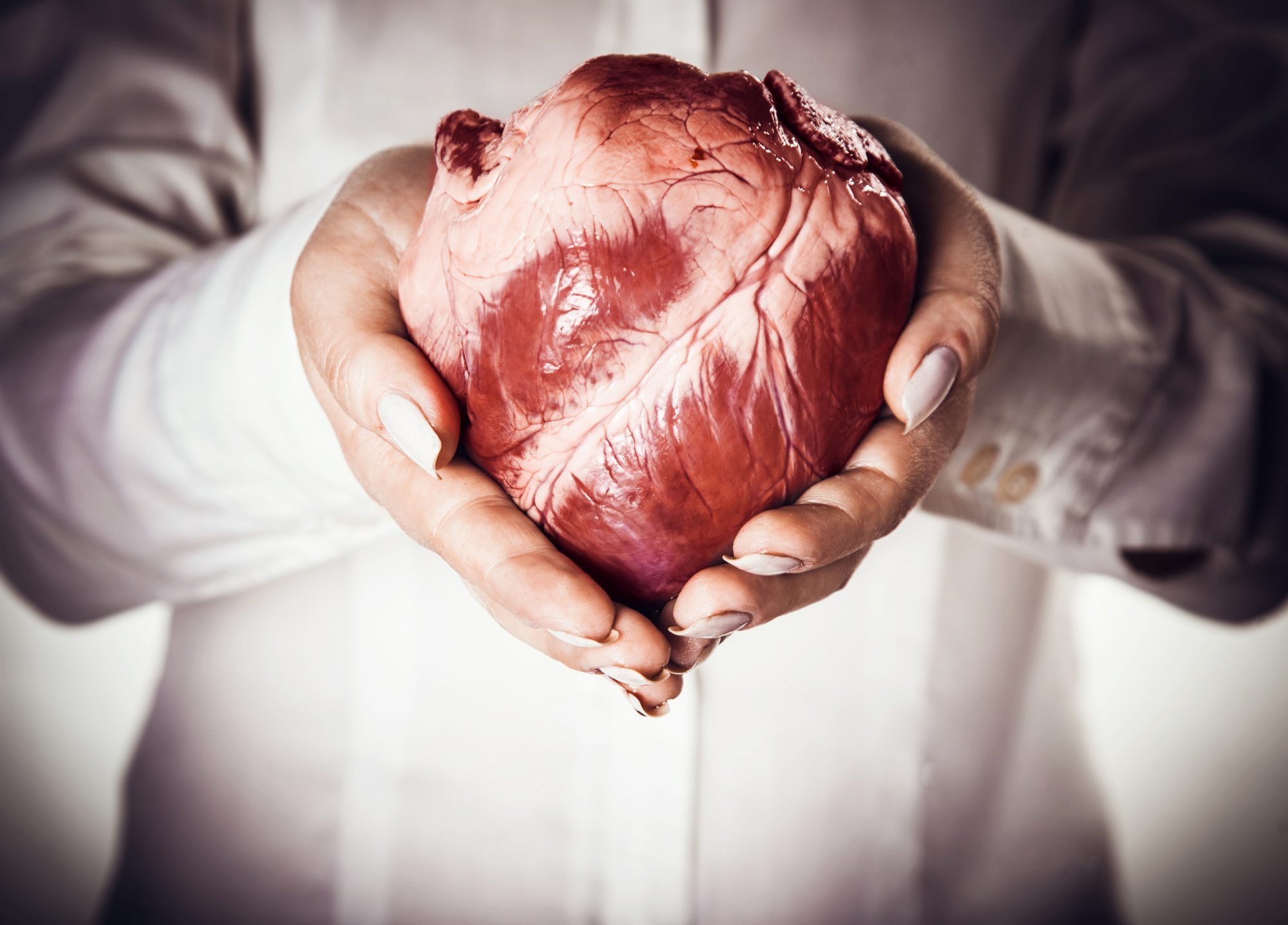
Key facts
- A heart transplant is a surgical operation to replace a damaged heart with a healthy donor heart.
- It can save your life if you have severe heart failure and no other treatments have worked.
- If you need a heart transplant, you will be on a waiting list until a suitable heart becomes available from someone who has recently died.
- After a transplant, look after your new heart by taking your medicines as your doctors advise, and maintain a healthy lifestyle.
- Contact your transplant team if you feel short of breath or dizzy, if your ankles are swollen or if you can feel your heartbeat (palpitations).
What is a heart transplant?
A heart transplant is a surgical operation to replace a damaged heart with a healthy heart from another person.
If you have severe (‘end-stage’) heart failure, your heart can’t pump enough blood around your body to keep your organs working. If other treatments have not worked, you may need a heart transplant to keep you alive.
Read more about organ transplants and life after a transplant.
Who can have a heart transplant?
Your healthcare team will assess whether you are suitable for a heart transplant. This depends on your heart condition and your general health.
You may not be eligible if you:
- have other serious health problems
- are living with obesity
- smoke
- use illicit (illegal) drugs or misuse prescription medicines
It also depends on whether you are willing to undergo the surgery itself and participate in life-long treatment to look after your new heart. To decide whether to have a heart transplant, it is important to understand your condition and the potential benefits and risks of the transplant. Read more about questions to ask your healthcare team.
Who can donate a heart?
The donor for a heart transplant is someone who has recently died. This person may have registered as an organ donor during their life, or their family may have decided to donate their organs.
You and your donor will need to have the same blood type and a similar body size.
To read more about organ or tissue donation or to register as a donor, visit DonateLife.
How long is the waiting list for a transplant?
If you are suitable for a heart transplant and you choose to have one, your name will be put on a waiting list. This is because there are not enough donor hearts for the number of people who need a transplant at any one time.
In Australia, the average wait for a heart transplant is 6 months.
When a donor heart becomes available, it is matched to people on the waiting list according to blood group and body size. It is usually offered to the person who needs the transplant most urgently.
While you are on a waiting list for a heart transplant, you need to always be contactable by phone, in case a suitable donor heart becomes available.
What happens in a heart transplant?
Once a donor heart becomes available for you, things can happen very quickly. You will be called to go to the hospital. You will need to fast to prepare for surgery.
During the heart transplant operation, the surgeon will remove your heart and replace it with the donor heart. Less commonly, the surgeon might attach the new heart to your damaged heart. While this is being done and until your new heart starts working, you will be connected to a machine that pumps blood around your body.
The operation usually takes between 4 and 6 hours. After the surgery, you will probably need to stay in the hospital for 2 to 3 weeks to recover.
After you go home, it is important to attend all your medical appointments and follow any recommended exercise and education programs. This is known as cardiac (heart) rehabilitation.
How will a heart transplant affect my life?
Even after you have fully recovered from the surgery, you will still need to have regular check-ups. Your healthcare team will talk to you about your treatment plan, how to monitor your health and how to care for yourself.
Preventing rejection
You will need to take medicine for the rest of your life to prevent your body from rejecting your new heart. Your doctors will advise you to have heart biopsies for 3 months to check for any signs of rejection.
Rejection doesn’t always cause symptoms, but you should know what to look out for. Contact your transplant team if you:
- feel short of breath
- find it harder than usual to exert yourself
- feel dizzy or very tired
- feel your heartbeat in your chest
- notice your ankles swelling
- gain weight
- lose your apetite
It’s very important to do what you can to avoid infections while you are taking anti-rejection medicines. Find out more about staying healthy after a transplant.
How can I maintain a healthy lifestyle?
You can reduce your risk of heart disease and prevent high blood pressure, high cholesterol, and diabetes by adopting a healthy lifestyle. This includes:
- eating a healthy diet including plenty of fruit, vegetables and whole grains
- maintaining a healthy weight
- getting regular exercise
- not smoking, or quitting smoking
Most people can return to work and normal activities and enjoy a good quality of life after a heart transplant.
How can family and friends help?
Being on the waiting list for a donor heart, undergoing the transplant operation itself and getting used to life after a transplant can be stressful. Family and friends can help by:
- supporting you emotionally
- reminding you about taking your medicines
- driving you to appointments


